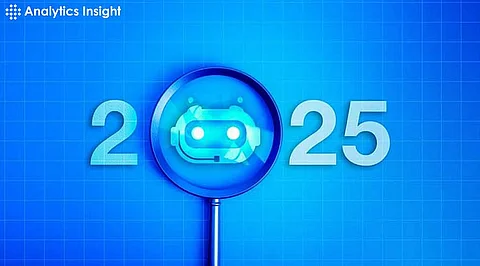

By March 05, 2025, AI assistants will have established themselves as integral tools in homes, offices, and industries globally. Sustained breakthroughs in natural language processing, machine learning, and integration capabilities have turned these digital assistants from mere command executors into advanced partners.
With countless options flooding the market, from household names like Google Assistant to specialized platforms like xAI’s Grok, determining the best AI assistant depends on specific needs and contexts. This article examines key players in 2025, breaking down their strengths and limitations under distinct sub-headings to highlight which one excels.
Google Assistant will still be a behemoth in 2025, leveraging its gigantic ecosystem and unparalleled search feature. Installed into Android phones, smart speakers, and wearables, it can schedule meetings to manage smart homes. It is capable of answering sophisticated questions based on real-time web results, ensuring correctness while offering multiple languages to meet global needs. Nevertheless, it's restricted to working offline.
Apple's Siri, inextricably integrated into the iOS ecosystem, focuses on privacy and automatic device synchronization. Upgrades in 2025 improve its contextual awareness, enabling it to handle calendars and recommend actions based on user behavior. However, its ecosystem exclusivity limits wider use. Amazon's Alexa has the smart home automation market cornered, controlling lights, thermostats, and more with Echo devices. Improved conversational abilities in 2025 make it easier to interact, although its commerce focus can be intrusive.
Microsoft Copilot will have become a pillar for professionals by 2025, complementing Office 365 and Teams to make workflow easier.
It composes emails, summarizes reports, and makes meeting invites accurately, leveraging enterprise-grade security. It works well in business settings but can be less universal for regular users. ClickUp Brain, which is for project management, excels at connecting tasks, files, and team details.
xAI’s Grok, launched as a truth-seeking AI, distinguishes itself in 2025 with unfiltered, critical responses.
Intended for web content analysis, X posted content and uploaded files, it gives precise insights for users who work by research. With its continuous refresh of knowledge and feature set of tools like analysis of profiles, it is a champion for scholarly work, but, for starters, its interface seems intimidating. AI conference assistant Laxis is developed for sales professionals and business practitioners.
Notta excels as a note-taking and transcription solution in 2025, transcribing meetings into searchable text in 58 languages.
Live translation and one-click summarization turn collaboration into ease, with flexibility offered through integrations with Slack and Zoom. Its dependence on connectivity, however, makes offline situations fall through. Jasper AI is a content creation assistant tool that helps content creators by being able to create marketing copy and high amounts of content.
Choosing the best AI assistant of 2025 depends on use and setting. Google Assistant stands out for general use with its availability and search capabilities. Siri is best for Apple die-hards who care about privacy, and Alexa is for home automation. Copilot and ClickUp Brain reign supreme in office productivity, each being superior within their platforms.
Grok is for researchers who require depth, and Laxis increases sales effectiveness. Notta streamlines paperwork, and Jasper AI empowers writers. Compatibility with devices or software currently in use, as well as being cost-free for giants like Google compared to the premium for Jasper, influences choices. Privacy issues lean toward Siri, and scalability favors Copilot.
No single AI assistant will reign supreme in 2025. Google Assistant has unparalleled versatility, Copilot propels pro productivity, and Grok advances intellectual limits. Alexa dominates homes, Siri prioritizes privacy, and niche-specific tools like Notta and Jasper AI occupy corners. Laxis and ClickUp Brain tackle specific workflows with laser-like accuracy.
The best choice originates from aligning features with needs, whether overall utility, office use, or creative works. With the advancement of technology, assistants will become smarter and wiser; therefore, the competition will grow stronger, and decisions will get more challenging.
